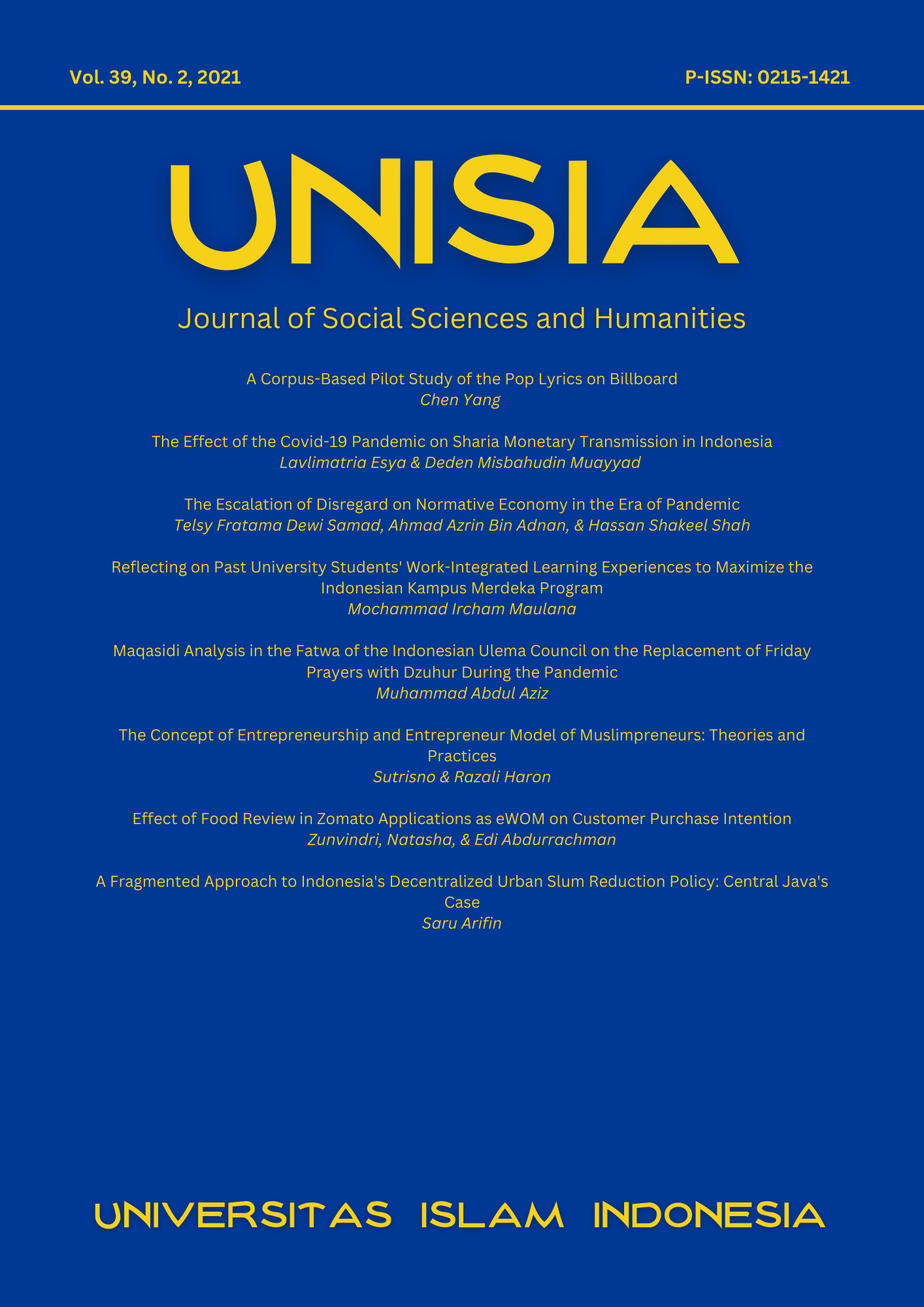Main Article Content
Abstract
This research analyzed the effect of the COVID-19 pandemic on sharia monetary transmission in Indonesia through channel financing on money supply (M2). It was conducted to determine the stationary, cointegration, and optimal lag using Vector Error Regression Model (VECM), Granger Causality Test, Impulse Response Function (IRF), and Forecast Error Variance Decomposition (FEVD). Secondary data were collected from the monthly variables M2, SBIS, PUAS, Islamic Banking Financing, and the COVID-19 pandemic (Dummy Variable) from January 2010 to December 2020. Furthermore, VECM model showed that in the long term, sharia monetary instrument variables, such as SBIS and PUAS, are significant and positive in affecting M2, while Financing (FIN) and the COVID-19 pandemic are insignificant. This also shows that in the short term, only PUAS is significant.
Article Details
License
- Authors retain copyright and grant the journal right of first publication with the work simultaneously licensed under a Creative Commons Attribution License that allows others to share the work with an acknowledgement of the work's authorship and initial publication in this journal.
- Authors are able to enter into separate, additional contractual arrangements for the non-exclusive distribution of the journal's published version of the work (e.g., post it to an institutional repository or publish it in a book), with an acknowledgement of its initial publication in this journal.
- Authors are permitted and encouraged to post their work online (e.g., in institutional repositories or on their website) prior to and during the submission process, as it can lead to productive exchanges, as well as earlier and greater citation of published work.
How to Cite
Esya, L., & Muayyad, D. M. (2021). The Effect of the Covid-19 Pandemic on Sharia Monetary Transmission in Indonesia. Unisia, 39(2). https://doi.org/10.20885/unisia.vol39.iss2.art2




